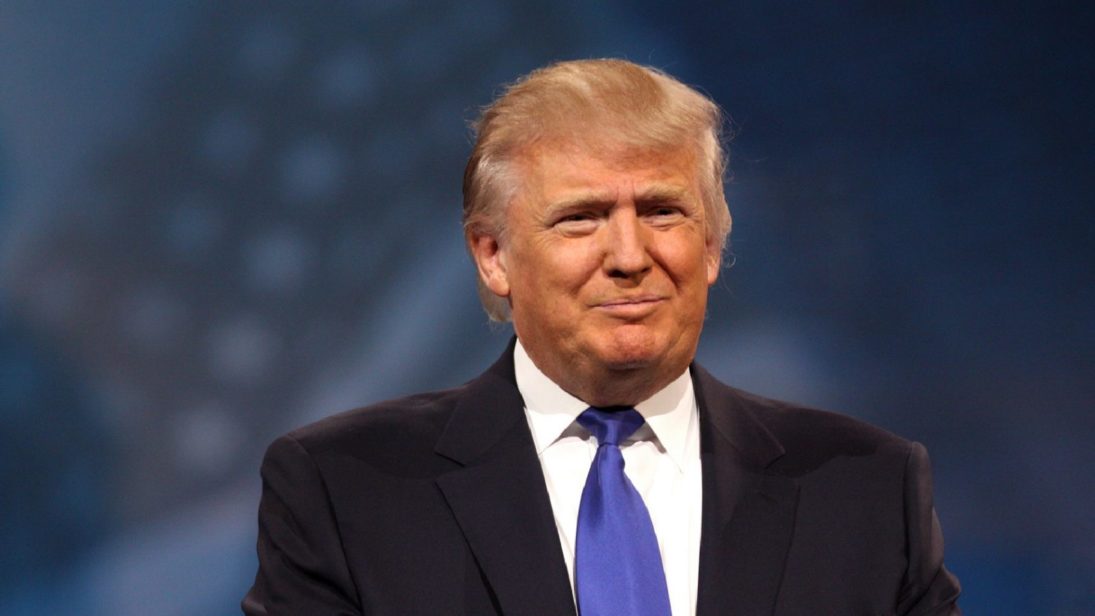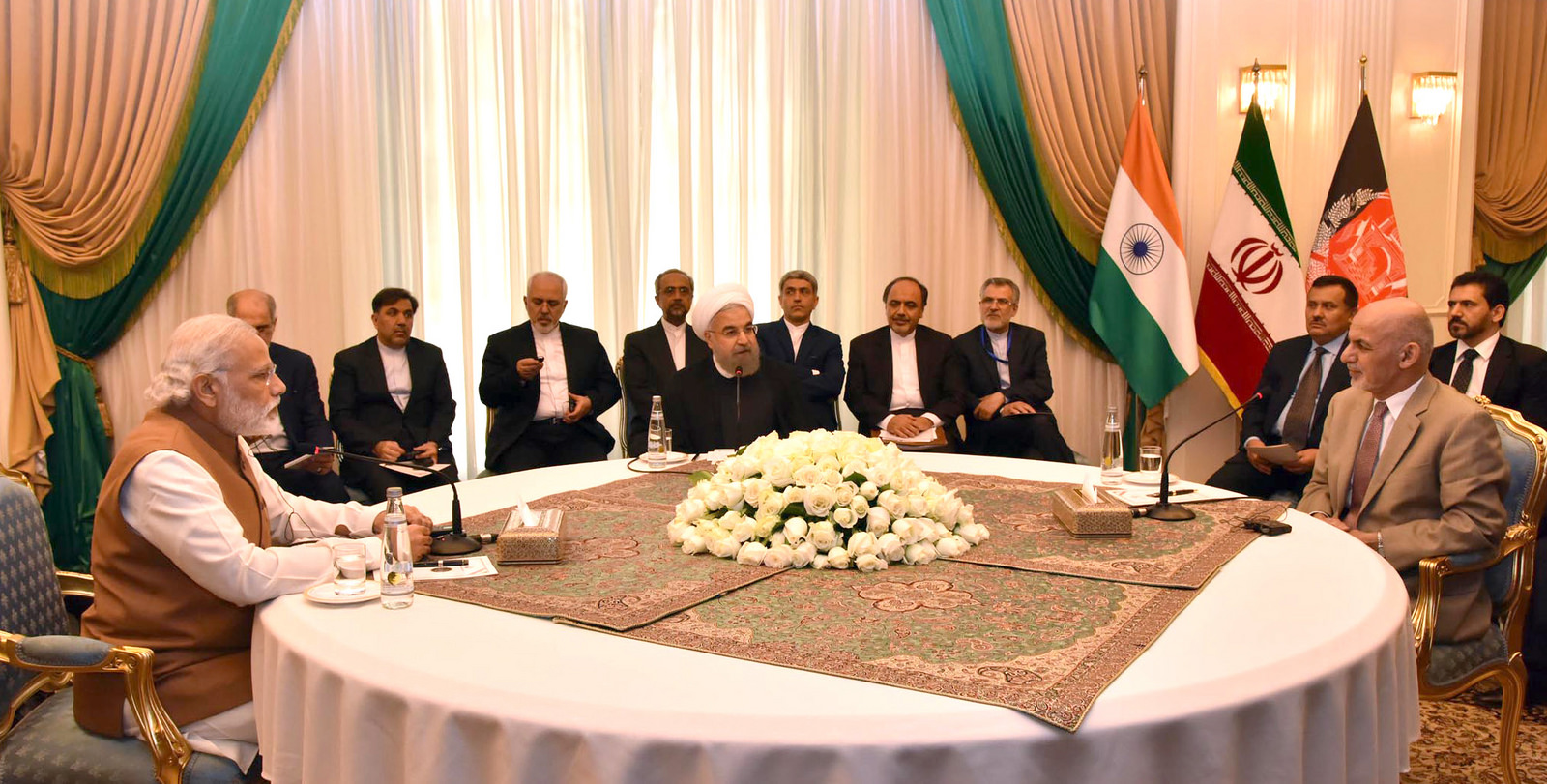
President Donald Trump, acting on his campaign promise, has taken the United States out of the Iran nuclear deal. Consequently, the United States will soon re-impose stringent nuclear-related economic sanctions on Iran, despite a lack of clear evidence that it was violating the agreement, and even as the International Atomic Energy Agency (IAEA) had verified Iran’s compliance. President Trump has also threatened to impose sanctions on nations supporting Iran, which could have far-reaching strategic consequences for South Asia as well as the administration’s new strategy in the subcontinent.
Iran’s ability to expand its strategic space while under tremendous U.S. pressure in the past has direct implications for the conflict in Afghanistan and the current security environment in South Asia more broadly.
Tehran is a crucial and pragmatic regional actor in South Asia, having deftly secured its interests in the region over the past decade despite its tensions with Washington. Following 9/11, Iran confronted a strategic dilemma as it found itself sandwiched between Afghanistan and Iraq, both countries with massive U.S. military presence in the years after the deadly attacks. In response, Tehran gradually expanded its footprint in the region to advance its interests, supporting the government in Kabul and developing contacts with the Afghan Taliban in recent years. Similarly, when the international community imposed stringent oil-related sanctions on Iran, Tehran continued to sell petroleum products to India. Iran’s ability to expand its strategic space while under tremendous U.S. pressure in the past has direct implications for the conflict in Afghanistan and the current security environment in South Asia more broadly.
Hot Afghan Summer and Iran
Increased support from Iran could embolden the Taliban to continue to opt to fight over talks, complicating U.S. attempts to bring the insurgent group to the negotiating table.
Afghanistan is in the midst of a spring offensive launched by the Taliban: as in the past, despite the onset of the holy month of Ramadan, no ceasefire has been announced. The latest attack was carried out during a night-time cricket match, killing at least eight people in Jalalabad. Violence has spiked at a time when the Afghan government is also preparing for long-delayed parliamentary and local elections scheduled for October. The Taliban has an interest in undermining the political process, which they view as illegitimate, and have allegedly received logistical support from Iran to do so. With escalating tensions between Washington and Tehran over the nuclear deal, Iranian hawks can view the upcoming Afghan elections as an opportunity to undermine the United States’ claims of progress and stability in Afghanistan. Increased support from Iran could embolden the Taliban to continue to opt to fight over talks, complicating U.S. attempts to bring the insurgent group to the negotiating table.
Uncertainty Over Chabahar
The renewed and expanded sanctions regime will slow down development and operations at the Chabahar port, as multinational companies review their approach of engaging with and doing business in Iran.
In recent years, Iran and India have jointly invested in making Iran’s southwestern Chabahar port a crucial transit route to Afghanistan and Central Asia. Chabahar has been viewed as a competitor to the Chinese-funded Gwadar port in Pakistan. Chabahar’s operationalization and expanded Indo-Iranian cooperation was a result of the easing of U.S.-led international sanctions on Tehran. As Iran was gradually reintegrated into the global mainstream, foreign companies and governments entered into commercial partnerships with the Iranian government and private sector. In 2016, New Delhi signed a $500 million agreement to build two berths at the Chabahar port. Work on the port picked up pace with its inauguration in December last year. A few months before that, in October, India shipped the first ever consignment, of wheat, to Afghanistan through the Chabahar port, bypassing Pakistan.

However, the renewed and expanded sanctions regime will slow down development and operations at the Chabahar port, as multinational companies review their approach of engaging with and doing business in Iran. Already, reports indicate that Chinese and Finnish firms have suspended construction work at Chabahar. Uncertain U.S. policy may also slowdown Indian investment at the port as U.S. economic sanctions make it harder for Indian and other foreign firms to import equipment for joint projects at Chabahar. It will also lead Afghan traders to redirect their trade through Pakistan, consequently giving Islamabad an opportunity to recapture the lost Afghan market.
A Signal to Pakistan
President Trump’s withdrawal from the Joint Comprehensive Plan of Action and announcement to reimpose nuclear-related sanctions on Iran signals to the international community that he intends to follow through on his other tough decisions. It is highly probable that Pakistan is closely monitoring these decisions, especially the process that lead to the United States pulling out of the Iran deal. Islamabad has been in Washington’s cross hairs since the announcement of the Trump administration’s new South Asia strategy last August, and as their bilateral ties nosedive, Pakistan should prepare for a sudden worst-case scenario of a stringent sanctions regime from the John Bolton-led National Security Council (NSC). In case of such an eventuality, Pakistan is likely to face severe economic pressures and would have to find new sources of finances to remain steady, especially since the United States has a say in whether international organizations such as the World Bank and the International Monetary Fund bail Pakistan out. Moreover, Islamabad will also harden its current posture towards Washington, which will in turn impact the Afghan war. It could reverse any economic and political gains that Pakistan might accrue as a result of renewed sanctions on Iran.
With sanctions expected to impact Chabahar, Afghanistan’s plans to connect with India and Iran hang in balance and it will be dependent on Pakistan for trade once again.
Nonetheless, a strategic window could open for Pakistan in Afghanistan during the coming months as pressure on Iran increases. Through the Chabahar port, Afghanistan has an alternate access route to India, without going by land through Pakistan. This way, the port can bolster the Afghan economy by diversifying its linkages to regional countries. However, with sanctions expected to impact Chabahar, Afghanistan’s plans to connect with India and Iran hang in balance and it will be dependent on Pakistan for trade once again. But Pakistan too has suffered due to reduced trade with Afghanistan as a result of their bilateral tensions. For economic gains to be reaped by both Kabul and Islamabad, the political climate between the two governments needs to improve. Trade and economic diplomacy can create incentives for meaningful dialogue. Recent weeks have seen attempts at addressing the trust deficit between Kabul and Islamabad through deeper engagement, and should this process have positive results, Islamabad stands to gain significant strategic advantages from the Washington-Tehran acrimony over the nuclear issue.
Conclusion
The Trump administration’s South Asia strategy is now closely linked with its Iran policy, as the imposition of sanctions on Iran will have direct strategic repercussions for South Asian security. India will also be impacted by Washington’s renewed attempt to pressurize Iran. Meanwhile, Pakistan has an opportunity to earn much-needed strategic space in Afghanistan in preparation for imminent pressure from the Bolton-Trump combine on the bilateral front.
Click here to read this article in Urdu.
Image 1: Gage Skidmore via Flickr (cropped)
Image 2: Narendra Modi via Flickr
***


